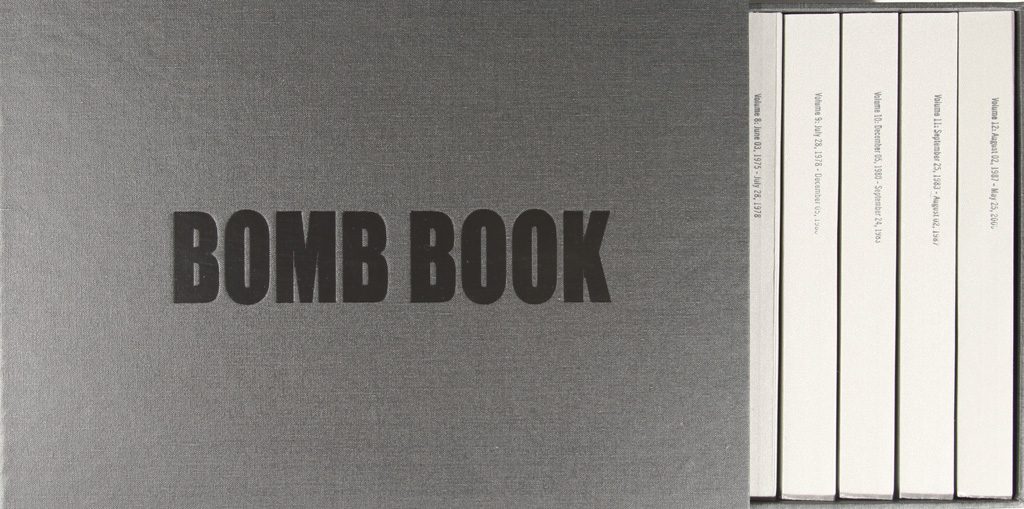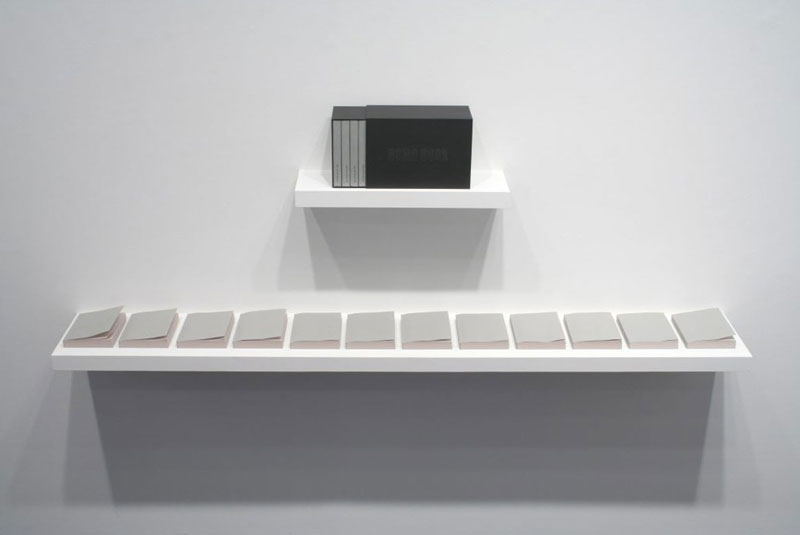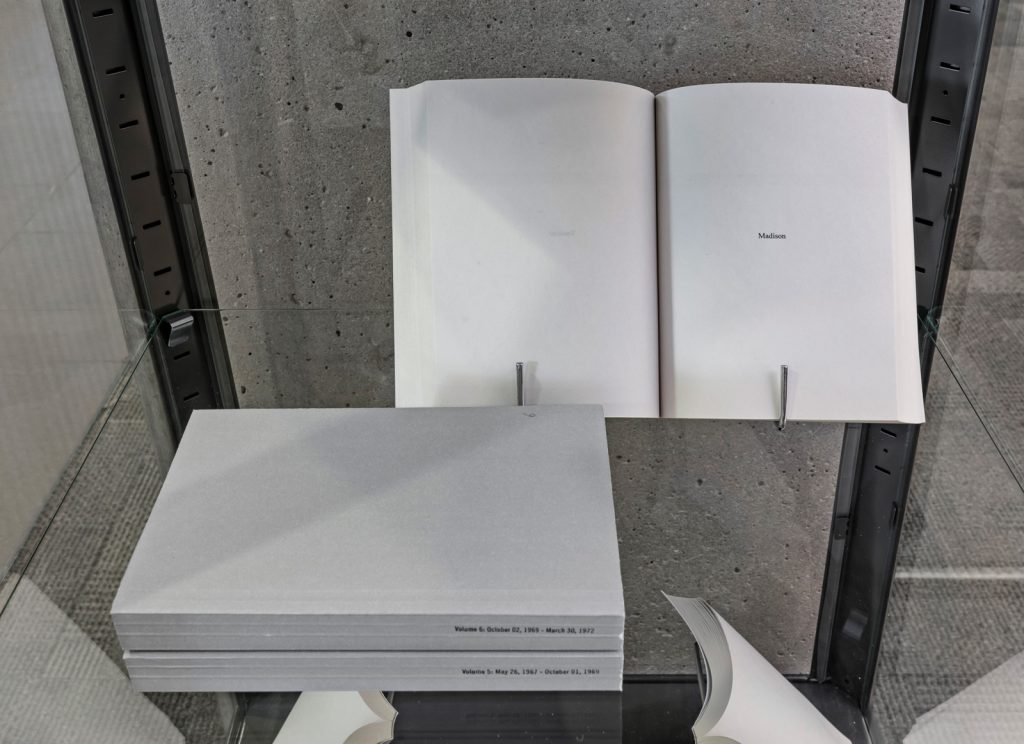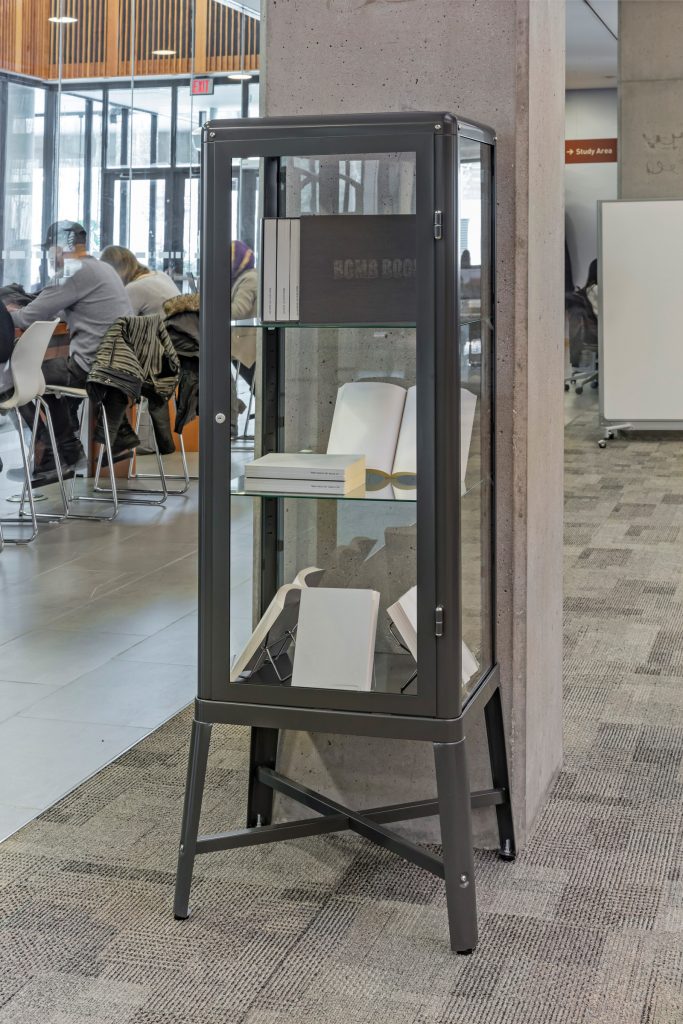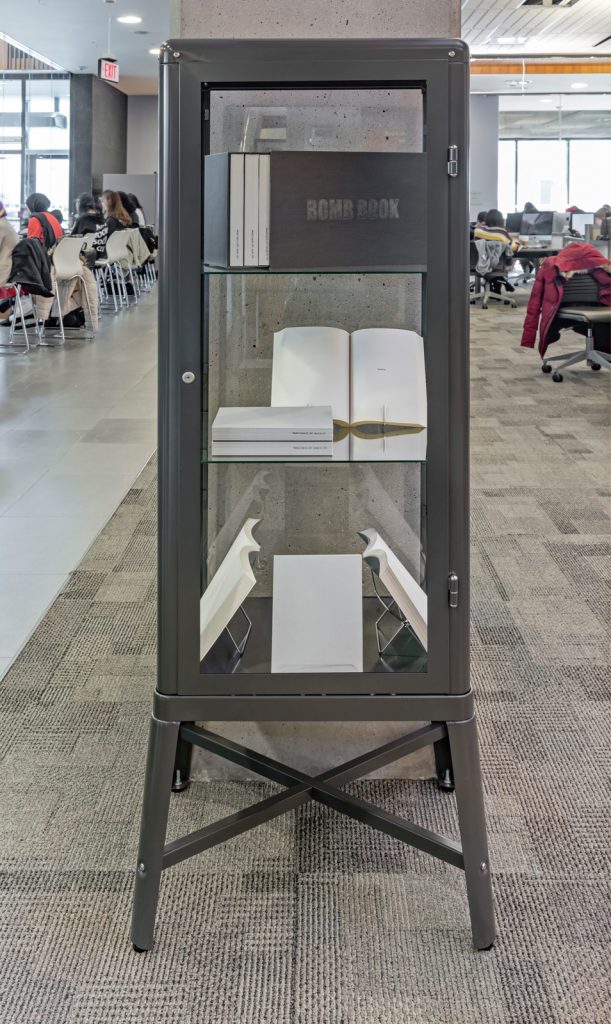March 13, 2019
12-1pm
e|gallery, main floor, CCT Building
The detonation of the atomic bomb has come to serve as a primary marker of the Anthropocene, our emergent geological epoch defined by humanity’s profound impact on its environment. Andrea Pinheiro’s 12-volume, 2,450-page Bomb Book series catalogues the names of every atomic bomb dropped since 1945, a testament to the profound reach and influence of these detonations. Following a reading from her Bomb Book series, Pinheiro will be in conversation with Joshua D. Pilzer (Associate Professor of Ethnomusicology, University of Toronto) regarding the impact of the atomic bomb on both individuals and ecosystems, as well as cultural responses that emerge in the aftermath of these devastating events.
Proudly sponsored by U of T affinity partners:
Discover the benefits of affinity products!
